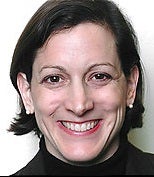Are non-fiction books fading away? Of course not; Anne Applebaum, Samuel Johnson Prize chair

Your support helps us to tell the story
From reproductive rights to climate change to Big Tech, The Independent is on the ground when the story is developing. Whether it's investigating the financials of Elon Musk's pro-Trump PAC or producing our latest documentary, 'The A Word', which shines a light on the American women fighting for reproductive rights, we know how important it is to parse out the facts from the messaging.
At such a critical moment in US history, we need reporters on the ground. Your donation allows us to keep sending journalists to speak to both sides of the story.
The Independent is trusted by Americans across the entire political spectrum. And unlike many other quality news outlets, we choose not to lock Americans out of our reporting and analysis with paywalls. We believe quality journalism should be available to everyone, paid for by those who can afford it.
Your support makes all the difference.As long as I can remember, books have been dying. Not only that, they’ve been dying in a wide variety of ways. Twenty years ago, I heard V.S. Naipaul tell a roomful of people that “the novel is finished,” there was no point in writing them anymore. More recently, I’ve listened to panel discussions about the nature of the physical book: will we still need them, in the era of the ebook - and will digital natives, brought up online, even have the concentration to read anything longer than a few paragraphs anyway?
In the UK, there was recently a debate about non-fiction, and whether that might be fading away too. Commercial publishers, searching for one-hit wonders, are said to be obsessed with short, superficial “idea” books, modelled on the hugely successful, innovative works of Stephen Pinker or Malcolm Gladwell. Each seeks to define a fashionable issue – “why the internet is bad for you” or “why countries decline” – and then uses pseudo-science or even real science, watered down for the masses, to contrive a solution. Filled with jargon, boosted with diagrams and generally interchangeable, they seem to fill the publishers’ backlists, squeezing out everything else. Memoirs, biographies, popular histories, serious journalism, all the traditional forms of quality non-fiction – they can’t compete.
The trouble with this assessment, of course, is that it pretends to have discovered something new. In fact there have always been literary fashions, in non-fiction as well as fiction, and there have always been copycat writers who imitate their more successful peers. In the 1990s, there was a rush to publish “travel books” in mode of Bruce Chatwin, Paul Theroux or Colin Thubron. Their narratives were excellent, but a lot of their imitators weren’t. Eventually, the Spectator published an article entitled, if memory serves, “Is Your Travel Book Really Necessary” which mocked the entire genre. Not long after, it began to fade away.
There have always been trends and fashions – and there have always been exceptions, the books that break the trends, upend the genre distinctions and create new ones. Year in, year out, those are the ones that everyone remember - and everyone imitates. The “New Journalism” of the 1960s – Tom Wolfe, Gay Talese - was fresh and exciting until it wasn’t. Some of the academic historians who started writing for mass audiences – David Mcoullough in the US, or Mary Beard in the UK - have been wildly successful, but they produced bad imitators too.
The fashion for pseudo-science will fade. But the urge to innovate - to find new ways of combining fact and fiction, literature and history – is certainly not going away. Last year’s Samuel Johnson Prize winner, H is for Hawk, fit into almost no known paradigm. But because it was successful, it too will have imitators (L is for Lion? C is for Crab?) which will clutter up a few backlists until they fade away. There is no such thing as a publishing year without a few outstanding books, a few quirky tomes that represent a new cutting edge. Nor is there a publishing year that lacks outstanding works in traditional genres: history, memoir, biography, journalism. People kept writing novels after Naipaul declared them dead, they kept reading hardback books after the publishers declared them dead, and I’m willing to bet that non-fiction will live on too. Every year, there are a few, experimental or otherwise, which shine no matter what the latest fashion. Judging by this year’s entries, 2015 will be no exception.
Anne Applebaum is a Pulitzer Prize winning writer, and is chairing the Samuel Johnson Prize 2015
Join our commenting forum
Join thought-provoking conversations, follow other Independent readers and see their replies
Comments